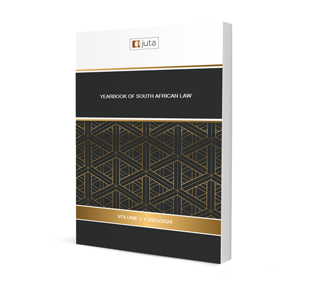Administrative Law

Administrative Law
Author Helena van Coller
ISBN: 978 148515 163 0
Affiliations: LLB LLM (UFS) LLM (Utrecht) LLD (UJ) PGDHE (Rhodes); Professor, Faculty of Law, Rhodes University
Source: Yearbook of South African Law, Volume 5, p. 47 – 73